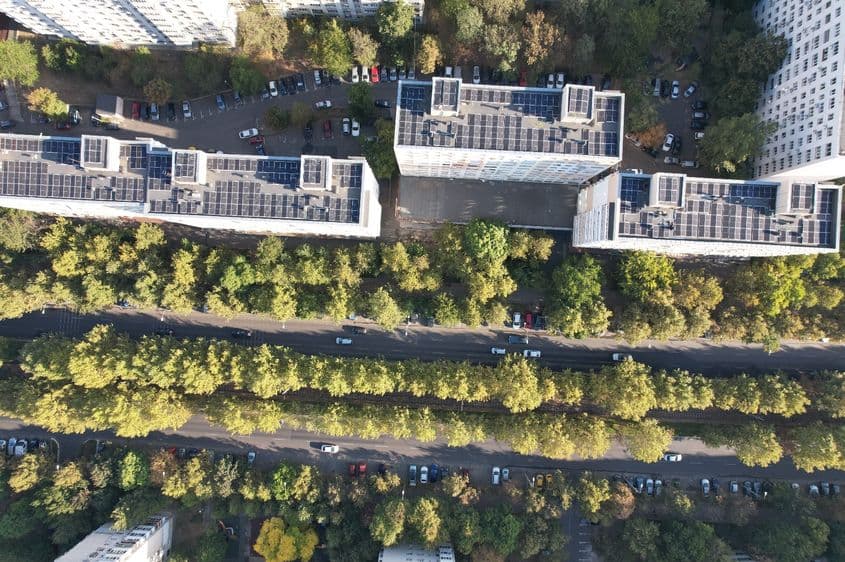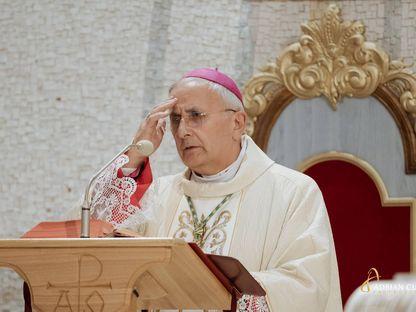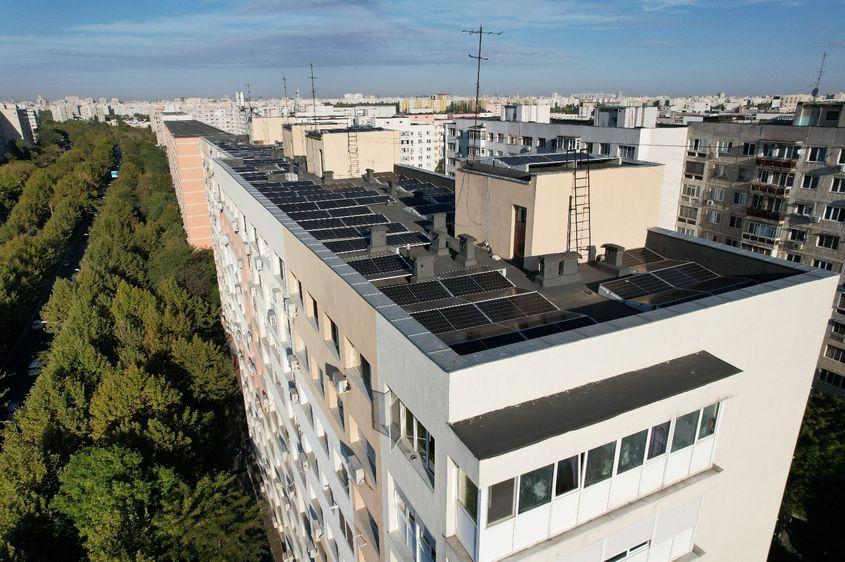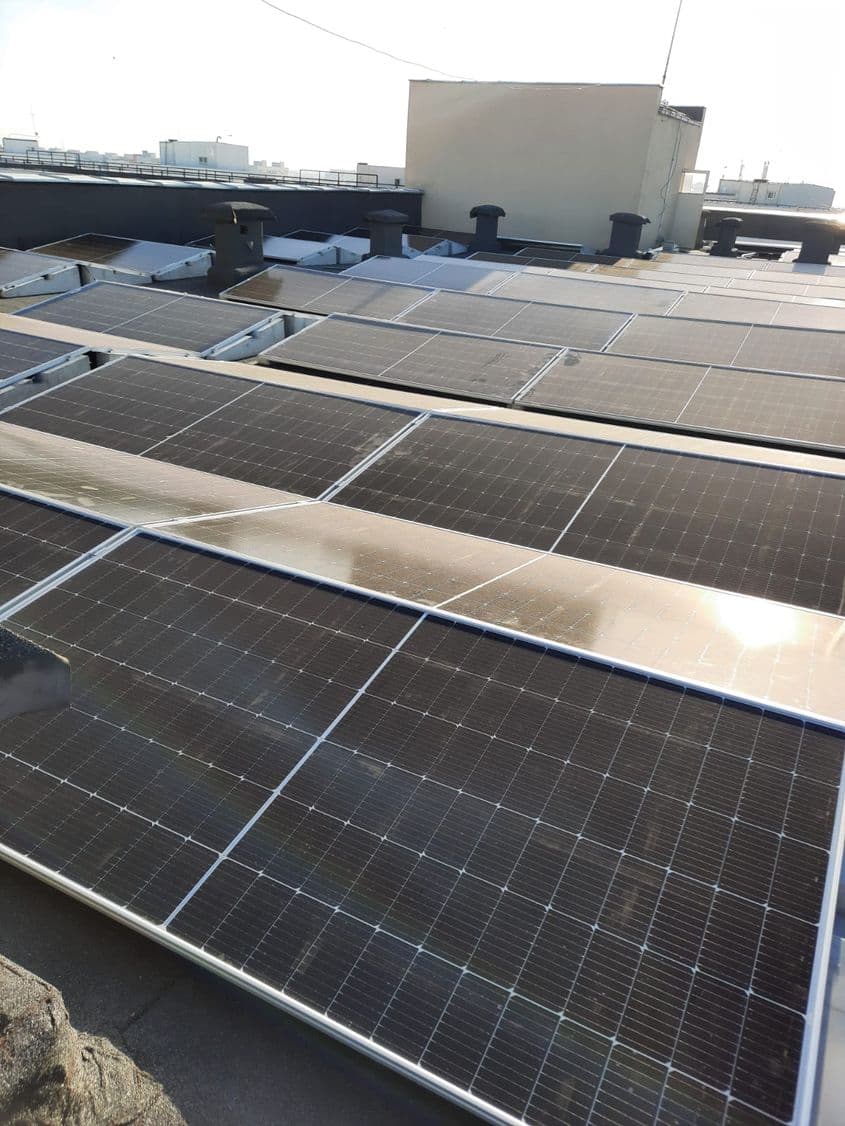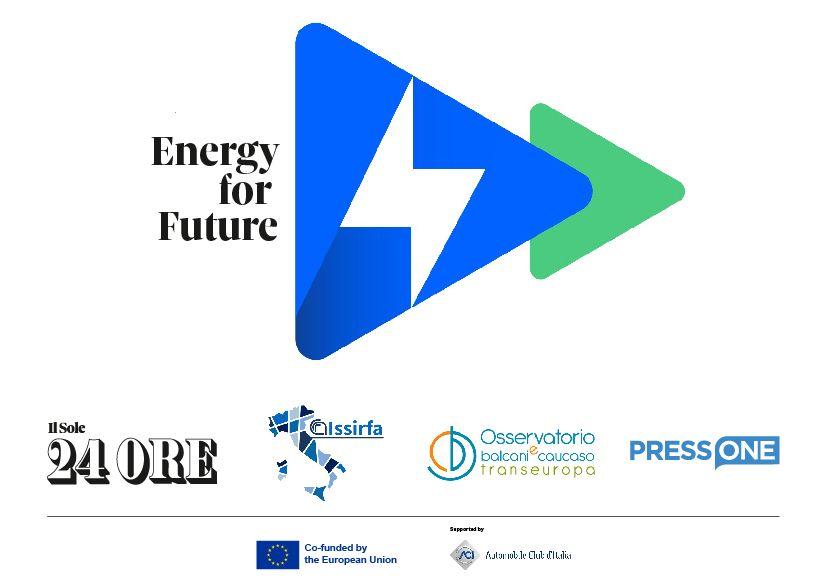Around 100,000 apartment blocks in Romania could produce green energy by installing photovoltaic panels on their roofs. Photo: Ioana Podaru, president of Sector 3 owners association
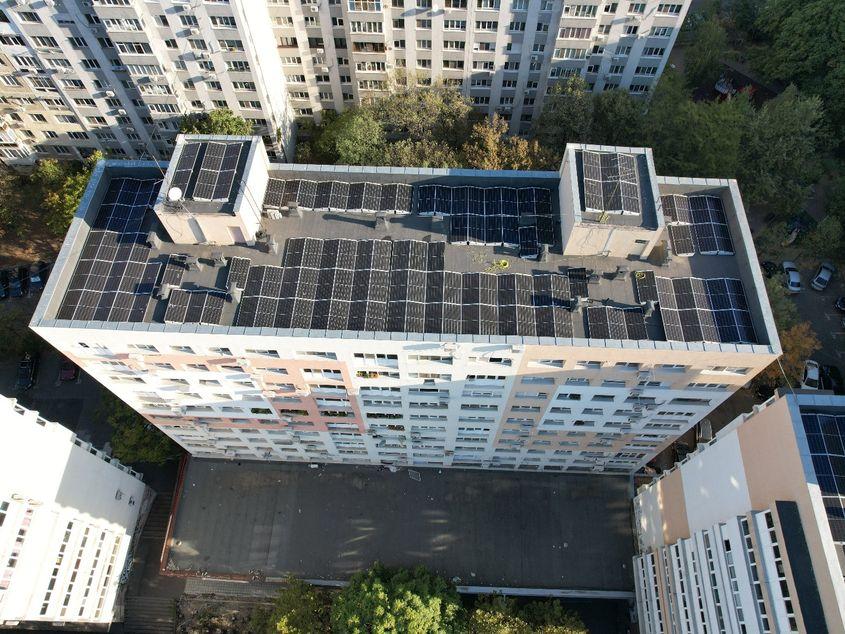
Around 100,000 apartment blocks in Romania could produce green energy by installing photovoltaic panels on their roofs. Photo: Ioana Podaru, president of Sector 3 owners association
12/03/2024
Green Energy on Apartment Blocks: Harnessing Electricity and Heat from Romania's Communist-Era Building Terraces
There are about 100,000 apartment blocks in Romania that could produce green energy, according to the National Institute of Statistics. The solution lies in installing photovoltaic panels on the terraces of these apartment blocks to capture and convert solar energy into electricity. In reality, however, individuals who want to undertake this face several obstacles, ranging from the absence of a national program to cover the investment costs to authorities shirking responsibility.
How are the panels mounted on the terraces of the buildings? Is it safe to place them on the roof? Who benefits from the energy produced, and more importantly, how are the costs shared? These are questions PressOne has attempted to answer after consulting with several building residents.
The first man in Oltenia with solar panels on his apartment block
Iulian lives with his family in an apartment block built in the 1980s in Râmnicu Vâlcea. Since the town lacks a local heating plant, he has relied on a boiler for hot water.
"I always ended up paying more than 600 lei a month for electricity," says Iulian, who refers to himself as the first person in Oltenia to install photovoltaic panels on his apartment block.
In September 2022, he decided to install photovoltaic panels on the roof of his apartment block for his own use and applied to become a prosumer. That's when his challenges with the authorities began.
"I submitted the paperwork, after which the distribution company informed me that, according to the Civil Code, I needed notarial consent from the association. I gathered the building president, went to the notary, obtained the notarial consent, and sent it in. But that wasn't enough! They said you need the consent of all the tenants," recalls Iulian.
A block consisting of several staircases in Sector 3 of the Capital is to become a prosumer. Photo: Ioana Podaru, president of the owners' association
From one institution to another
The block where the man lives consists of seven staircases and over 100 tenants and it would have been almost impossible for him to get everyone's consent. So he applied to the National Energy Regulatory Authority (ANRE) and the National Authority for Consumer Protection to resolve his situation. According to the reply from ANRE, the man would have been entitled to install the panels on the block with the agreement of 50% plus 1 of the tenants.
Mulți ne citesc, puțini ne susțin. Fără ajutorul tău, nu putem continua să scriem astfel de articole. Cu doar 5 euro pe lună ne poți ajuta mai mult decât crezi și poți face diferența chiar acum!
"I collected even more signatures. All the neighbours on the 4th floor, where I live, have given their notarial consent, and for the others I called a scale meeting and got their consent on the basis of a roll call. Especially since we agreed not to put more than 3 kW, so that everyone has room if they want. However, since then and until now no one has asked permission to put up panels," says the man.
After he had obtained all his neighbors' signatures, he returned to the distribution company to finalize the prosumer contract: "They rejected me and sent me back to ANRE, where I was told to return to the distributor, that I was correct."
After a meeting with the distribution company, Iulian managed to finalize the connection contract. However, when it came to the supply contract, the scenario repeated itself. It was only in March 2023, more than six months later, that he managed to become a prosumer and produce and consume energy from renewable sources. He funded the entire investment himself, 24,000 lei, paying in installments of 2,000 lei per month, and has not paid a single cent for energy bills for almost a year.
"I also had a property at home, but I opted for the block option because in the countryside there are transformers that don't support much energy. In an apartment block, especially one with commercial premises on the ground floor, there are consumers of energy day and night, so you don't have a problem of overloading the networks," says Iulian.
According to Dumitru Luță, president of the Association of Small Electricity Producers in Romania, the law does not prohibit the installation of photovoltaic panels for personal use on apartment blocks, especially since the roof area is divided by the number of apartments in that block. However, very few individuals choose to install panels on the roof of their block for their own use. More commonly, panels are installed by a tenants' association, and the energy is used by the community.
Predator in Robes: The Diocese of Iași and the Vatican Buried a Sexual Assault Committed by a Catholic Priest Against a Minor in Bacău, Failing to Alert Prosecutors
A Roman Catholic priest abused a 13-year-old girl in the parish where he served in Bacău County: the bishop of Iași knew about it, sent the case to the Vatican, and applied canonical sanctions, but did not notify the authorities, who only intervened later and sentenced him to prison.
Shared electricity for the stairwell light
Ioana is the president of a homeowners' association in Sector 3 of the capital. In December 2022, she registered the block, built in 1977, in a project launched by the Sector 3 City Hall "Consume smart, use green energy". According to the specifications, the block would have benefited, through the project carried out by the city council with its own funds, from the installation of photovoltaic panels for electricity production, the replacement of lifts and heat pumps. The latter would convert the energy captured by the panels into heat energy.
90% of the investment was to be covered by money from the municipality, with the association contributing 10%. Ioana calculated that this meant that each apartment would have to pay 1,600 lei.
Un newsletter pentru cititori curioși și inteligenți.
Sunt curios
"We called the general meeting to ask for their consent. It took about a month to agree. In February we submitted the project and a month later we were notified that we had been selected," says Ioana.
The eight-storey block currently has 489 photovoltaic panels mounted on the terrace.
At present, 489 photovoltaic panels have been installed on the terrace of the block in Sector 3 and are to be connected to the electricity distribution and supply network.
"All that remains is to connect the electrical panels on the ground floor, which serve the common areas, because all the energy will be used only in the communal spaces, not by individual owners," explains Ioana.
Unlike Iulian's case, the energy produced by the panels installed on the block in Sector 3 will be used for common areas: for lighting or air conditioning in the stairwell, for the elevator, and also for producing hot water for the entire block using heat pumps.
As with any prosumer, the amount of energy not directly consumed will be financially compensated by the supplier after 24 months of non-use. In the case of a tenants' association, this money can be used to cover other expenses or investments in the building.
While there are national funding programmes for individuals and companies installing photovoltaic power plants, such as the "Green House Photovoltaic" programme managed by the Environmental Fund Administration, this does not apply to blocks. Owners' associations cannot apply for funding from the AFM.
The buildings that have undergone thermal rehabilitation with funds from the National Recovery and Resilience Plan (PNRR) will also benefit from photovoltaic panels. For example, at the beginning of the year, the mayor of Sector 4 in Bucharest announced that he had started installing the panels on buildings rehabilitated through the PNRR. Additionally, the mayor of Sector 3 invited interested owners' associations to send an email to the town hall.
The building belongs to everyone, why invest in it
ÎntreVecini is an NGO that, in 2022, "raffled" the opportunity to install a photovoltaic plant for a housing association. More than 80 housing associations signed up for the project at that time, and the winner was one in Sector 6, which became a prosumer in December 2022.
"The most difficult part of installing photovoltaic panels on a building is getting neighbors to agree," says Mihai Toader-Pasti, founder of ÎntreVecini, an association aimed at creating solar-powered neighborhood communities.
"It costs money. You have to invest some money now and amortize your investment over a few years; it depends, two or three. There are some years in between, and the question for everyone is, 'Why should I do this?' In Romania, in the vast majority of cases, that money could be used for anything other than investing in panels on the building, because the building belongs to everyone. People still do this with their own houses because they think, 'Yes, it's mine; it's my house, and if I sell it, I will sell it with the panels,'" says Mihai.
There are solutions, but they take time, especially since people are in a hurry and don't understand the benefits of installing panels on their building. That's why, with the association he founded, he goes to people and tries to explain the situation. For example, he explains that the terraces of the buildings, if properly built, will not be affected at all by the installation of the panels.
The weight of the panels does not affect the terrace of the block (10kg/m2) Photo: Ioana Podaru, president of the owners' association
"They are very light (10 kg/m2). If the terrace has been designed and executed correctly, i.e. to hold a man, these panels are lighter than a man. Especially if the terrace is straight on the block," explains the founder of ÎntreVecini.
Individual vs. communal
Just as Iulian installed photovoltaic panels on the roof of his apartment block to produce electricity for individual use, so could his other neighbours. So PressOne asked the experts if it would be practically possible.
"In principle it can. If you want to use it for individual consumption and become a prosumer today, you have to connect the panels to an inverter, which has to go to your apartment, to the meter," explains Mihai Toader-Pasti.
Let's imagine a building with 20 apartments. If each owner decides to opt for the individual model, at the end of the day, there will be 20 inverters, 20 prosumer contracts, 20 cables, and 20 fuses in the building.
"That's extreme fragmentation, which doesn't really make sense. Economically, it's not the best solution. A better solution might be to have a single inverter," adds the ÎntreVecini founder. Tenants can organize themselves into energy cooperatives or energy communities.
Essentially, explains Mihai from ÎntreVecini, one of the tenants invests some money in installing the system, and the money is returned to him in proportion to the investment made. It's similar to investing in a small company, only this time the company is the building that produces energy from green sources.
Ciolacu government promises
PressOne also talked about what it means to be a prosumer in Romania, when it reviewed the biggest dysfunctions in the production, consumption and distribution of renewable energy.
If then, according to data provided by the National Energy Regulatory Authority, the number of Romanian prosumers had reached 77,638, in December 2023 - according to statements made by ANRE president Grigore Niculescu in a press conference - the number of prosumers exceeded 101,000, with a total installed capacity of 1,298 MW.
"We made this comparison at the beginning of our mandate, with Cernavodă, here we are going to surpass two nuclear reactors at Cernavodă or close to it (no. Cernavodă's energy production is 1.4 MWh)", declared, in December 2023, the ANRE president.
It is worth noting that the solar power installed by prosumers, which, according to the ANRE president, will exceed 1.5 GW, cannot be directly compared with the energy constantly produced by the Cernavodă nuclear power plant, as solar energy fluctuates greatly depending on the weather and the time of day.
In Brussels, Romania committed itself to a series of targets for renewable energy production. To meet its contribution to the European Green Deal of at least a 55% net reduction in greenhouse gas emissions by 2030, Romania will need to install an additional 6.9 GW of green energy production capacity in the coming years. At the EU level, 40% of energy is consumed by buildings.
In June 2023, the Ciolacu government promised in its government program to initiate several projects: one to cover the roofs of public institutions with photovoltaic panels, another for apartment blocks and collective housing, and a mandate that every new building constructed for residential purposes must have photovoltaic panels.
So far, the government has increased the VAT on panels from 5% to 9%.
___
This article is published as part of the Energy4Future project, co-funded by the European Union. The European Union is not responsible for the information and opinions expressed during this project and article. Responsibility for the content lies entirely with PressOne.
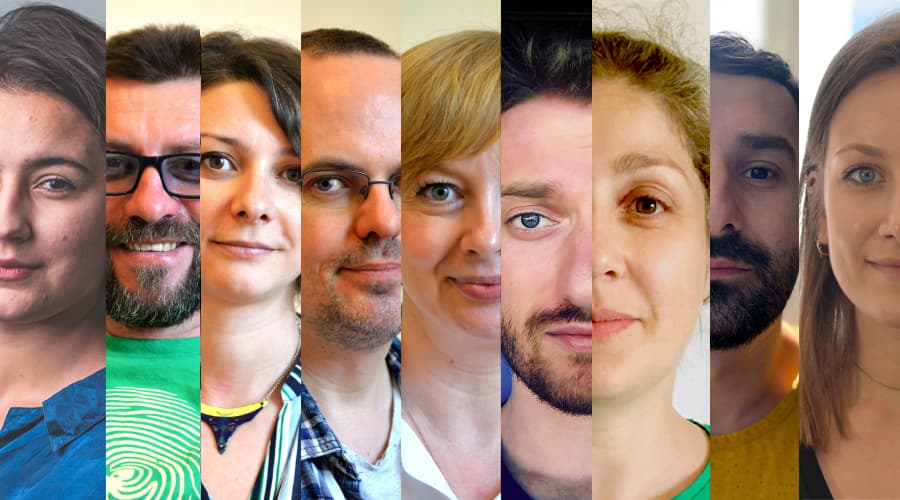
Avem nevoie de ajutorul tău!
Mulți ne citesc, puțini ne susțin. Asta e realitatea. Dar jurnalismul independent și de serviciu public nu se face cu aer, nici cu încurajări, și mai ales nici cu bani de la partide, politicieni sau industriile care creează dependență. Se face, în primul rând, cu bani de la cititori, adică de cei care sunt informați corect, cu mari eforturi, de puținii jurnaliști corecți care au mai rămas în România.
De aceea, este vital pentru noi să fim susținuți de cititorii noștri.
Dacă ne susții cu o sumă mică pe lună sau prin redirecționarea a 3.5% din impozitul tău pe venit, noi vom putea să-ți oferim în continuare jurnalism independent, onest, care merge în profunzime, să ne continuăm lupta contra corupției, plagiatelor, dezinformării, poluării, să facem reportaje imersive despre România reală și să scriem despre oamenii care o transformă în bine. Să dăm zgomotul la o parte și să-ți arătăm ce merită cu adevărat știut din ce se întâmplă în jur.
Ne poți ajuta chiar acum. Orice sumă contează, dar faptul că devii și rămâi abonat PressOne face toată diferența. Poți folosi direct caseta de mai jos sau accesa pagina Susține pentru alte modalități în care ne poți sprijini.
Vrei să ne ajuți? Orice sumă contează.
Share this


